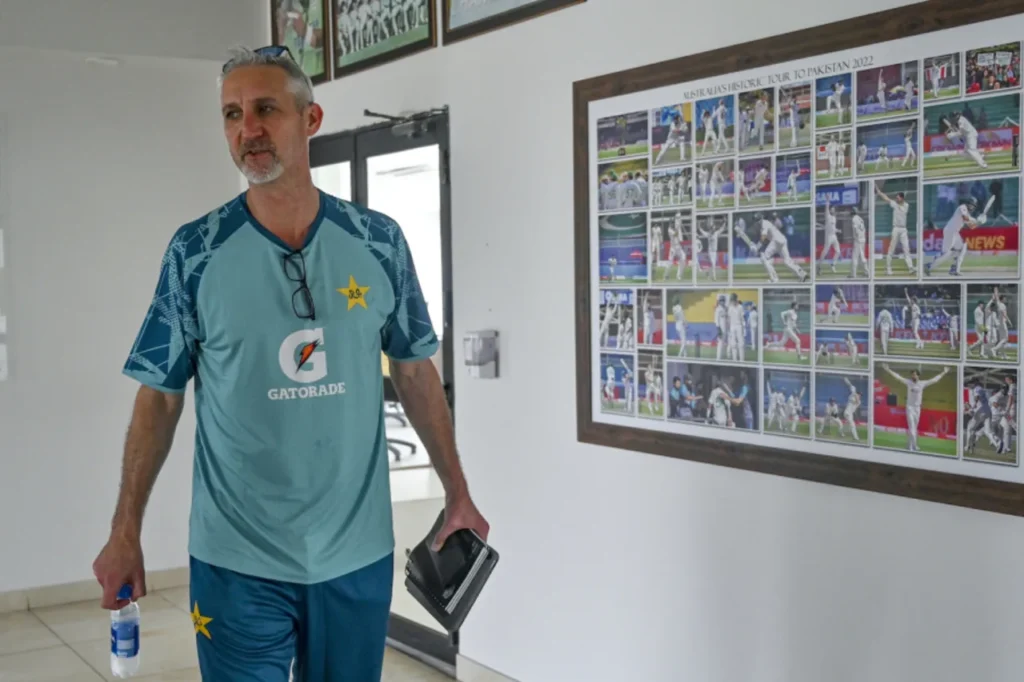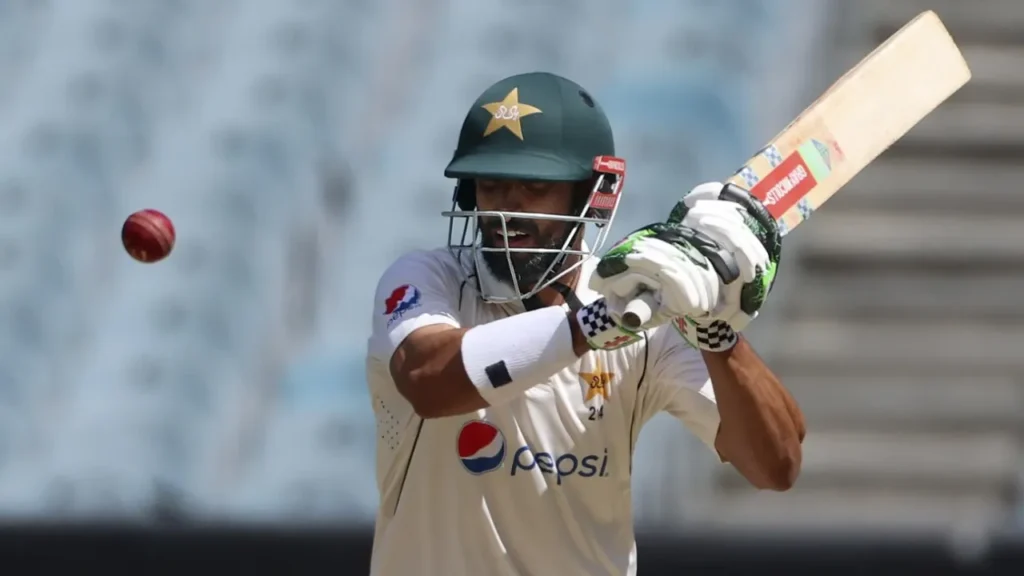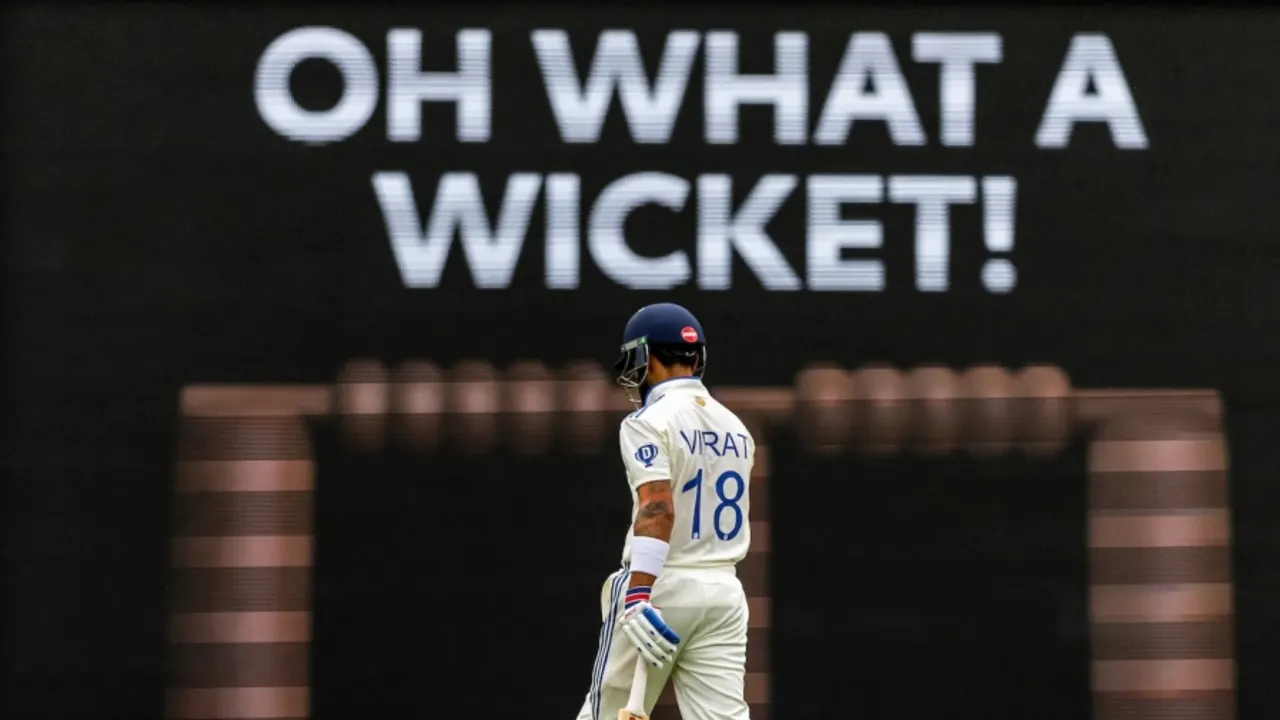As Pakistan gears up for an exceptionally busy Test cricket season, Test captain Shan Masood and head coach Jason Gillespie have voiced a strong desire for more Test matches in Pakistan’s cricket calendar.
With the team set to embark on a rare sequence of home and away fixtures, the duo discussed the challenges of the current Pakistan Test cricket schedule, the need for consistent cricket, and what Pakistan must improve to become a dominant force at home.
A Rare Season of Test Cricket
Pakistan Test cricket schedule is about to begin a packed home season with a two-Test series against Bangladesh in Rawalpindi on August 21. Following this, they will host England for three Tests and then take on the West Indies in a two-Test series at home.
In between, they will travel to South Africa for another two-Test series. Such an extensive schedule of Test cricket is a rarity for Pakistan, as the last time they played more than seven Tests in a season was in the 1998-99 season, over 25 years ago.

However, it’s not just the number of Tests that matters. The long gaps between these series have been a significant impediment to Pakistan’s progress in the format. The upcoming series against Bangladesh will be Pakistan’s first Test series since the New Year’s Test in Sydney earlier this year.
After they finish their series against the West Indies in January 2025, they are not scheduled to play another Test until October when South Africa visits. The next series after that isn’t until March 2026, when they face Bangladesh again.
Masood has highlighted how this stop-start nature of scheduling has contributed to a widening gap between cricket’s top three nations—India, Australia, and England—and the rest of the Full Members. This sentiment is not unique to Pakistan; West Indies captain Kraigg Brathwaite also expressed similar concerns after his team’s 3-0 defeat against England last month.
Masood’s Plea for More Test Matches
“We need more Test cricket,”
Masood emphasized during a PCB podcast where he was interviewed alongside Jason Gillespie by former cricketer and broadcaster Bazid Khan. Masood pointed out that Pakistan’s domestic structure is robust, with players participating in at least ten first-class matches each year. Some even played up to 16-17 matches with the reintroduction of departmental cricket.
“The issue isn’t domestic cricket,” Masood noted.
“The challenge lies in how we can ensure our team plays more Test matches. It’s about scheduling, reducing the gaps between series, and maintaining consistent Test squads. We’re playing nine Test matches in four months, which is great, but we also had a ten-month gap between our last Test in Australia and our next one. These are challenges that Pakistan cricket needs to address moving forward.”
Masood also acknowledged that Pakistan still hasn’t figured out the best way to play at home.
“If I’m being brutally honest, our home Test matches have been played at different times of the year and against various nations, so we still haven’t found an ideal style that suits our batting, bowling, and overall approach at home.”
Struggles and Potential at Home
Masood took over as Test captain last year, replacing Babar Azam, and his first assignment was a daunting tour of Australia. Pakistan has not won a Test in Australia since the 1995-96 season, and despite some spirited performances, they were whitewashed in the series.
The real challenge, Masood believes, lies in becoming more formidable on home soil. After Test cricket returned to Pakistan in 2019, the team initially built a strong winning record at home. However, since their victory against South Africa in January 2021, Pakistan has struggled, failing to win any of their last three home series.
They were whitewashed by England and managed only a 0-0 draw against New Zealand. These series, as well as an earlier one against Australia, were played on lifeless pitches, contrasting sharply with the more lively surfaces seen when Test cricket first returned to Pakistan.
With a new curator, Tony Hemming, in place, there is hope that the pitches will offer more support for Pakistan’s strengths in the upcoming season.
“In Test cricket, which is the ultimate challenge in the game, you have to be familiar with certain conditions,” Masood said.
“Yes, we’ve been playing at home since 2019, but other teams have been playing on their home soils for much longer. We still need to figure out what approach works best for us at home.”
Gillespie’s Vision for Pakistan’s Test Identity
Jason Gillespie, embarking on his first assignment as Pakistan’s Test coach with the Bangladesh series, echoed Masood’s sentiments. He emphasized the importance of developing a strong identity for Pakistan in Test cricket, especially when playing at home.
“I think the identity will sort itself out,” Gillespie said.
“In this next period, seven of our nine Tests are in Pakistan, which is fantastic. It would be great to play more Test cricket, and the PCB is exploring ways to increase opportunities, such as more Shaheens (Pakistan A) games and four-day matches, to bridge the gap between domestic and international cricket.”
Gillespie recognizes the difficulty of playing on different surfaces in Pakistan, which vary from north to south.
“We may not resolve these challenges immediately, but it will be a process to determine exactly what surfaces we want to play on going forward,” he explained.
“We need to be flexible and adaptable, but we’ll certainly develop a basic blueprint for how we want to play our games.”
Balancing Workloads and Opportunities
As Pakistan’s Test schedule ramps up, managing player workloads has become a critical issue. Several top players, including Babar Azam, Mohammad Rizwan, Shaheen Shah Afridi, and Naseem Shah, were not given NOCs (No Objection Certificates) to participate in overseas leagues, underscoring the need to prioritize national duties.
Gillespie acknowledged the challenges in balancing the demands of playing for Pakistan with the financial opportunities available in various leagues.
“There are challenges, no question,” Gillespie said.
“The priority is representing Pakistan, but if there are opportunities—on a case-by-case basis—for a player to learn and improve, which in turn will help them be a better cricketer for Pakistan, then we’ll consider those opportunities. But we won’t compromise the team in any format.”
Read The PCB’s Official Press Release
A Path Forward for Pakistan
As Pakistan prepares for a rare season of consistent Test cricket, the comments from Masood and Gillespie underscore the importance of scheduling more Tests, developing a strong home identity, and managing player workloads effectively. While challenges remain, both leaders are optimistic about Pakistan’s future in Test cricket, with a clear focus on becoming a formidable team both at home and abroad.
This season could be a turning point for Pakistan, as they seek to reclaim their standing in the Test arena and close the gap with cricket’s top nations. The journey may be challenging, but with the right strategies in place, Pakistan has the potential to make significant strides in the world of Test cricket.











